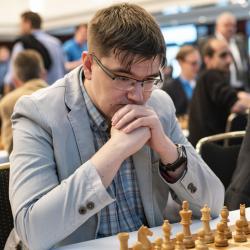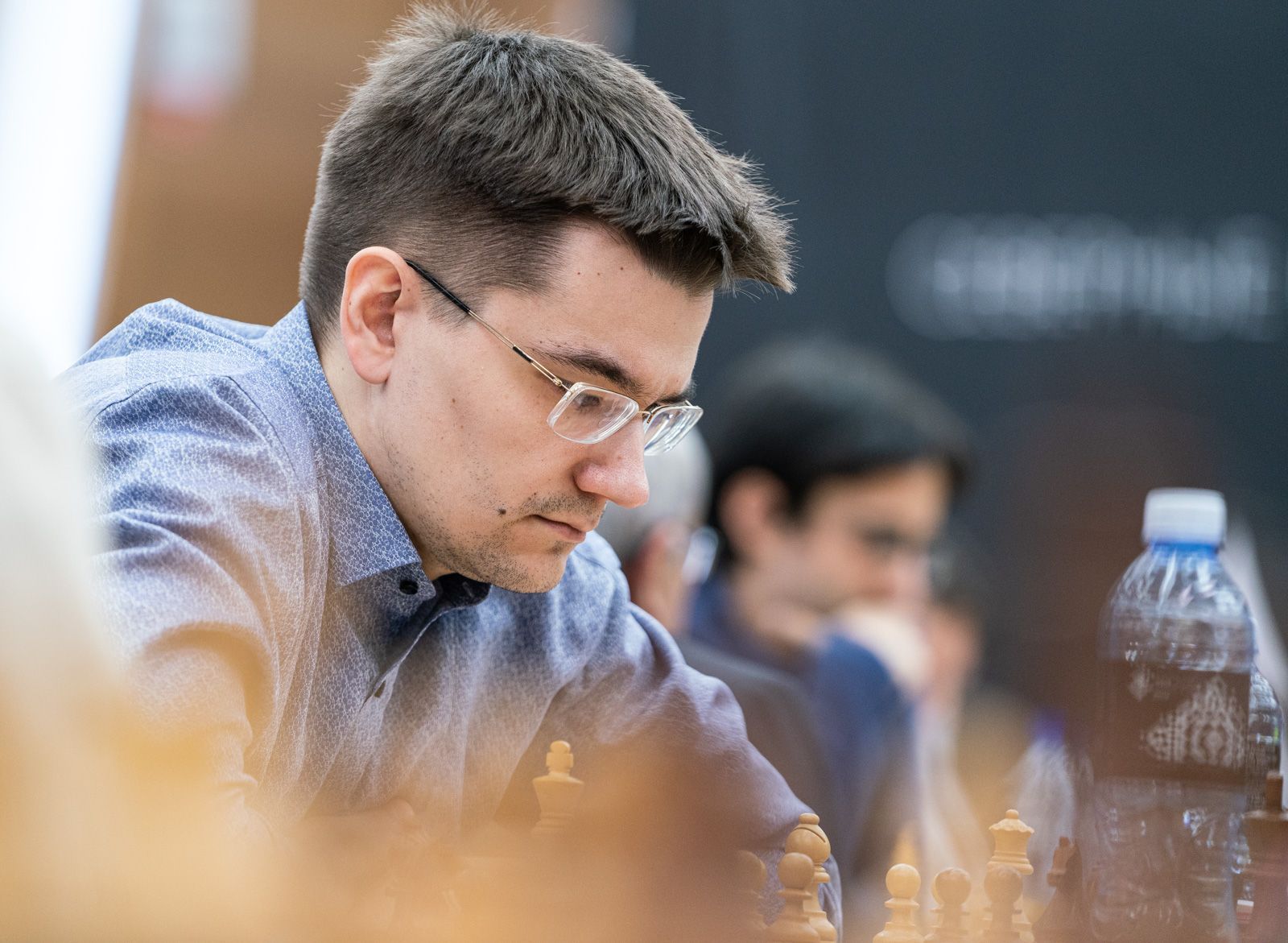GM Evgeny Tomashevsky

Bio
Nicknamed "the Professor" among his colleagues, Evgeny Tomashevsky is a Russian super GM and two-time national champion.
Early Life And Career
Born on July 1, 1987 in Saratov on the Volga River, Evgeny Tomashevsky was Russia’s under-10 champion in 1997. By the time he was 14, he was already strong enough to win Russia’s 2001 under-18 title, and that same year he earned his first GM norm, scoring 6.5/9 at the Czech Open.
Tomashevsky’s development continued rather unabated, and he had a wildly successful 2004, establishing himself as a GM.
GM
In April 2004, Tomashevsky passed the 2500-rating threshold and followed up by winning his last two GM norms, at his home town Saratov in August and at Serpukhov in November. He also finished second to Poland’s GM Radoslaw Wojtaszek in the under-18 division at the World Youth Championships. Both Tomashevsky, whose wins included the below sacrificial attack, and Wojtaszek played the event as IMs before receiving their GM titles in 2005.
In 2007 Tomashevsky had his most successful Russian Championship performance to that point with a third-place finish behind GM Alexander Morozevich and GM Alexander Grischuk. Tomashevsky also finished second at that year’s Aeroflot Open and played in his first FIDE World Cup, losing in the third round.
Tomashevsky had another successful year in 2009, climbing past a 2700 rating. His big event was a gold medal at the European Individual Championship. Although Russians have come to dominate that event, winning eight of 10 golds in the 2010s, Tomashevsky was only the second player from his home nation to win it since it was first held in 2000.
World Championship Cycle
Tomashevsky’s third World Cup, in 2011, also led to a third-round exit. In his fourth try in 2013, however, he advanced all the way to the semifinals.
One would not have blamed Tomashevsky for another third-round exit on this occasion as he faced top-seeded GM Levon Aronian there, but Tomashevsky won outright 1.5-0.5.
He won with the black pieces in a Stonewall formation (pawns on c6-d5-e6-f5) from the Queen’s Gambit Declined. He then needed a tiebreak 4-3 win over GM Alexander Morozevich before a 1.5-0.5 victory against eighth-seeded GM Gata Kamsky in the quarterfinals. Tomashevsky finally fell in the semifinals to GM Dmitry Andreikin.
Tomashevsky’s performance at the 2013 World Cup earned him a bid into the more exclusive FIDE Grand Prix for 2015, which turned out to be a big year for him. He ultimately finished fourth in the Grand Prix, but not before winning the Tbilisi leg in February. Tomashevsky won several impressive victories in a 1.5-point victory; among his victims were Grischuk, GM Shakhriyar Mamedyarov, and GM Maxime Vachier-Lagrave.
Coming off the 2015 Grand Prix, Tomashevsky was invited to the top division at the prestigious Tata Steel tournament in 2016. While he only tied for 10th in the 14-player field, Tomashevsky nonetheless scored one major victory, defeating then-world number five GM Fabiano Caruana in their game.
Russian Champion
In addition, 2015 was the year Tomashevsky won his first Russian championship. He did so outright with a 7.5 score that exceeded GM Sergey Karjakin’s by a half-point. Neither player lost a game, but Tomashevsky’s four victories—against GMs Denis Khismatullin, Igor Lysyj, Ildar Khairullin, and Ivan Bukavshin—were one more than Karjakin’s three.
Thanks to this August performance and his earlier success in Tbilisi, Tomashevsky’s rating peaked at 2758 on the September 2015 list.

Tomashevsky repeated as Russian champion in 2019. Once again he won outright by a half-point, this time over three opponents: GMs Nikita Vitiugov, Maxim Matlakov, and Ernesto Inarkiev. As in 2015, Tomashevsky was undefeated, winning three games against eight draws.
In terms of the world championship, Tomashevsky’s best World Cup performance remains that of 2013, as in recent years he has been eliminated in the third round or earlier.
At the same time, Tomashevsky is one of just three players (after eight-time winner GM Peter Svidler and two-time winner Morozevich) to earn multiple post-Soviet Union Championships, cementing his legacy.


